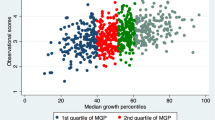Abstract
This article analyzes forms of resourceallocation in university systems and theireffects on performance in institutions ofhigher education. Internationally, highereducation systems differ substantially withregard to research and education fundingsources and to ways that resources areallocated. European universities receive themajority of their funding from public sources,but private funding plays a more important rolein Anglo-American systems of higher education.Many governments use competitive elements inthe process of allocating public funds toinstitutions of higher education. Examplesinclude the implementation of performancemeasures through “formula funding”, or resourceallocation on the basis of evaluated projectproposals. Corresponding forms ofperformance-based resource allocation can befound within most higher educationinstitutions. This article analyzes how variousforms of funding and resource allocation affectuniversities at the macro-level and individualbehavior at the micro-level. A theoreticalapproach to this problem suggests thatperformance-based funding tends to bring aboutpositive changes but is also a factor inunintended side effects. Forms of resourceallocation influence the behavior of academicsand managers in higher education, particularlytheir levels of activity as well as the kindsof activities they engage in and their ways ofdealing with risks. Empirical analyses partlyconfirm these hypotheses. It can be shown thatchanges in resource allocation have an impacton the level and type of activity academicsconcentrate on but not on the long-term successof universities.
Similar content being viewed by others
References
Arrow, K.J. (1991). ‘The economics of agency’, in Pratt, W. and Zeckhauser, J. (eds.), Principals and Agents: The Structure of Business, 2nd ed. Boston, pp. 37–51.
Clark, B.R. (1983). The Higher Education System.Academic Organization in Cross-National Perspective.Berkeley.
Clark, B.R. (1998). Creating Entrepreneurial Universities: Organizational Pathways of Transformation. Pergamon.
Dill, D.D. (1997). ‘Higher education markets and public policy’, Higher Education Policy10(3/4), 167–185.
Ewers, H.-J. (1996). Das Elend der Hochschulen-Eine oekonomische Analyse der Organ-isation und Finanzierung deutscher Universitaeten. Diskussionspapier, Wirtschaftswis-senschaftliche Dokumentation, Fachbereich 14, TU Berlin.
ETH Zurich (1998a). Jahresbericht 1997. Zurich.
ETH Zurich (1998b). Mehrjahresplan 2000–2003 der ETH Zurich. Zurich.
Flitner, H. (1989). ‘Budgetierung’, in Karpen, U. (ed.), Hochschulfinanzierung in der Bundes-republik Deutschland.Eine Einfuehrung.Baden-Baden, pp. 145–184.
Geuna, A. (1999). The Economics of Knowledge Production.Funding and the Structure of University Research. Cheltenham.
HEFCE (Higher Education Funding Council for England) (1998). Funding Higher Education in England.How the HEFCE Allocates Its Funds. November 98/67 Guide, Bristol.
Jongbloed, B. (1998). ‘Internal Resource Allocation in Universities’, Presented at the 20th EAIR Forum, San Sebastian.
Jongbloed, B. and Vossensteyn, H. (1999). ‘Performance based research funding. An international comparative perspective’. CHEPS Working Paper for the 12th CHER conference, Oslo.
Laux, H. (1990). Risiko, Anreiz und Kontrolle.Principal-Agent-Theorie.Einfuehrung und Verbindung mit dem Delegationswert-Konzept. Heidelberg.
Laux, H. and Liermann, F. (1993). Grundlagen der Organisation.Die Steuerung von Entscheidungen als Grundproblem der Betriebswirtschaftslehre,3rd ed.Berlin.
Layzell, D.T. (1998). ‘Linking performance to funding outcomes for public institutions of higher education: The US experience’, European Journal of Education33(1), 103–111.
Liefner, I. (2001). Leistungsorientierte Ressourcensteuerung in Hochschulsystemen.Ein inter-nationaler Vergleich. Abhandlungen zu Bildungsforschung und Bildungsrecht, Berlin.
Maassen, P. and v. Vught, F. (1994). ‘Alternative Models of Governmental Steering in Higher Education’, in Goedegebuure, L. and v. Vught, F. (eds.), Comparative Policy Studies in Higher Education. Utrecht, pp. 35–63.
Mace, J. (1995). ‘Funding matters: A case study of two universities' response to recent funding changes’, Journal of Education Policy10(1), 57–74.
McDaniel, O.C. (1997). ‘Alternatives to government interference in higher education?’, Higher Education Management9(2), 15–133.
MIT (Massachusetts Institute of Technology) (1998). Budget Book.Fiscal 1999. Cambridge.
Owlia, M.S. and Aspinwall, E.M. (1996). ‘Quality in higher education-a survey’, Total Quality Management7(2), 161–171.
Pratt, J.W. and Zeckhauser, R.J. (1991). ‘Principals and agents: An overview’, in Pratt, J.W. and Zeckhauser, R.J. (eds.), Principals and Agents: The Structure of Business. Boston, pp. 1–35.
Reichwald, R. and Koller, H. (1998). ‘Zur Organisation der Universitaet der Zukunft. Eine oekonomische Betrachtung aus Sicht der Principal-Agent-Theorie’, Wissenschaftsmanagement(1), 39–49.
Schmidtlein, F.A. and Taylor, A.L. (1996). ‘Responses of American research universities to issues posed by the changing environment of higher education’, Minerva34, 291–308.
Schutte, F. (1998). ‘Financial resources management’. Established for the 16th Conference on University Management, University of Valladolid.
Slaughter, S. and Leslie, L.L. (1997). Academic Capitalism.Politics, Policies, and the Entrepreneurial University. Baltimore.
The State of Texas. The Coordinating Board (1998). General Appropriations Act, 75th Legislature, Article III (Education), Special Provisions. http://www.thecb.state.tx.us/ divisions/finance/uac/formulas9899.htm. 6 August 1999.
Trow, M. (1997). ‘Reflections on diversity in higher education’, in Herbst, M., Latzel, G. and Lutz, L. (eds.), Wandel im tertiaeren Bildungssektor.Zur Position der Schweiz im internationalen Vergleich. Zurich, pp. 15–36.
University of Basel (1998). Jahresbericht 1997. Basel.
University of Basel (1999). Makroschwerpunkte der Forschung.Bericht der Konzept-kommission. Januar 1999. http://www.zuv.unibas.ch/forschung/makro/bericht_konz-komm. html. 31 December 1999.
University of Bristol (1998a). Financial Statements 1997–1998.Bristol.
University of Bristol (1998b). Resource Allocation Model.Bristol.
University of Bristol (1999). Bristol University Resource Allocation Model 1999/00 Budget(unpublished).
University of Twente (1998a). Annual Report 1997. Enschede: University of Twente.
University of Twente (1998b). Begroting 1999. Enschede: Universiteit Twente.
US News (2000a). 2000 College Rankings. http://www.usnews.com/usnews/edu/beyond/ gradrank/eng/gdengt1.htm. 19 October 2000.
US News (2000b). 2000 College Rankings. http://www.usnews.com/usnews/edu/college/ rankings/natunivs/natu_a2.htm. 19 October 2000.
UT Austin (The University of Texas at Austin) (1998). Financial Statements(unpublished).
UT Austin (The University of Texas at Austin. Office of Institutional Studies) (1999). Statistical Handbook 1998–1999. Austin.
van Vught, F.A. (1997). ‘Combining planning and the market: An analysis of the Government strategy towards higher education in the Netherlands’, Higher Education Policy10(3/4), 211–224.
Wagner, A. (1996). ‘Financing higher education: New approaches, new issues’, Higher Education Management8(1), 7–17.
Williams, G. (1997). ‘The market route to mass higher education: British experience 1979–1996’, Higher Education Policy10(3/4), 275-289.
Author information
Authors and Affiliations
Rights and permissions
About this article
Cite this article
Liefner, I. Funding, resource allocation, and performance in higher education systems. Higher Education 46, 469–489 (2003). https://doi.org/10.1023/A:1027381906977
Issue Date:
DOI: https://doi.org/10.1023/A:1027381906977




